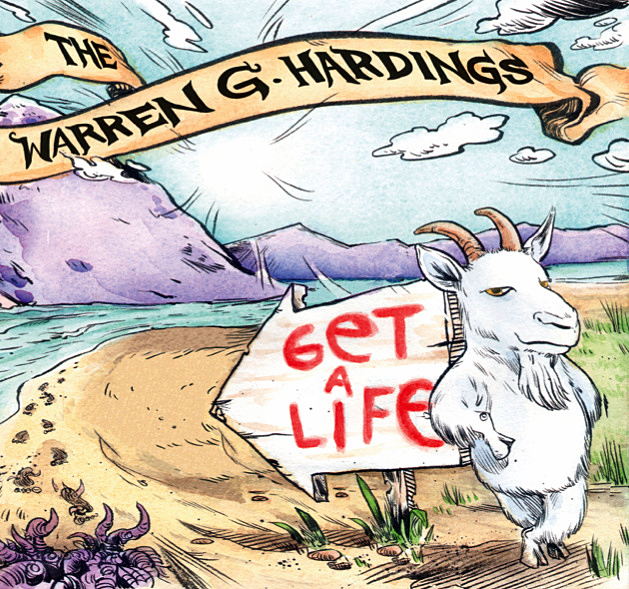The Warren G. Hardings, Get a Life (out now, self-released, thewarrenghardings.com) Even the most casual music listeners carry certain preconceptions when they first throw on a record. But music (and art in general) is often best when it casts aside staid notions of what it’s supposed to be, which is exactly what this indie-pop bluegrass group has done here. The musicianship, especially from banjo player Steve Werner and fiddler Lee Callender, is down-home, Kentucky-style bluegrass played at mind-numbing speed with dead-on accuracy. The tunes, however, fit more in the mold of the Death Cab for Cutie or Shins songbooks. The best examples of this marriage are “The Devil’s in the Roots” and “Post-Suburban Recession-Era Blues.” On this latter track, lead singer Dave Zelonka seems intent on bucking traditional bluegrass themes with the constantly repeating refrain, “Don’t need a girl, don’t need a dog/Just wanna watch hockey and have a day job.” Get a Life doesn’t go completely against the traditional grain, though, with a couple of genuinely great songs such as the funeral dirge-like “Anonymous Waltz” and the cheerful, folksy “What Can I Say.” Fitting classic Americana musicianship into a modern pop form is fraught with peril, and in lesser hands could be a disastrous mashup. The Warren G. Hardings have found a way to walk the line between both worlds that provides a unique and enriching listening experience. (May 14, Capitol Cider) CORBIN REIFF
Wyrd Visions, Half-Eaten Guitar (out now, P.W. Elverum & Sun, wyrdvisions.com) Wyrd Visions is not for casual listeners. Toronto songwriter Colin Bergh’s project disappeared almost as quickly as it arrived in 2006, taking with it its only record, Half-Eaten Guitar—a limited pressing from Blue Fog Recordings that quickly sold out. Luckily, Phil Elverum (the Microphones, Mount Eerie) was one of the few who heard it, and he’s reissuing and remastering it on his own label. While this will likely bring Half-Eaten Guitar a larger audience, it’s still going to take a lot of effort for it to fully reach the masses. Bergh makes this clear right away with “Sigiln,” an expansive 10-minute opener that repeats the same eerie melody and monotonous acoustic-guitar riff. There’s a sense of levity when it transitions to the next track, “Ceremony,” which expands the lofty melodies but without the endurance test. If it weren’t for the sweltering electric guitar on closer “Air-Conditioning,” the album might sound like a lost relic from a forgotten, mystical era—which in many ways, it still is. It’s an album to let wash over you completely, to allow a full soak in its obscure textures; a cursory listen will not fully reveal the beauty that hides beneath the weirdness. DUSTY HENRY




